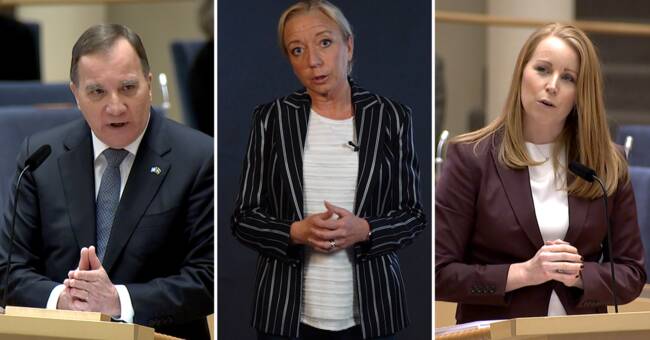Seventeen days before the 2018 election, Magdalena Andersson (S) promised increased tax for those with the highest capital income.
Exactly how the tax increase would be designed was unclear but the message was clear:
- Those who earn the most should also be involved and contribute, said the Minister of Finance.
Internal pressure on left gear
That the Social Democrats go on the offensive in the equality rhetoric at the end of an election campaign is as obvious as that spring follows winter.
But after the January collaboration and after a pandemic that put the budget rules out of play, the internal pressure on a left-wing gear is stronger than in a long time.
As SVT's survey shows, many of the party's pragmatic municipal politicians want to raise more taxes.
On their wish list is a progressive capital tax, reintroduced protection tax and a new property tax.
But the party leadership has already said no to the property tax.
In their calculation for continued government power, there is no left turn and above all no tax increases that can scare away the well-educated urban middle class that the party has become increasingly dependent on as a result of the loss of workers in the country.
- We have the pensioners, we have the immigrants, we have the women in the public sector and with our message of being the guarantor against SD, we have the academics in the big cities, provided we do not give in to their personal finances, as a Social Democrat puts it.
Defends against tax increases
The S leadership is thus defending itself against the demands for large tax increases.
But that the municipal politicians point out the Center Party as a coalition partner is more welcome and is completely in line with Stefan Löfven's (S) plan for continued government power.
It may seem a little strange that the same politicians who want to raise taxes want to rule with the party that has continued tax cuts on jobs and entrepreneurship as one of its top priorities.
The party that has not infrequently placed itself to the right of the Moderates in economic policy and in labor market policy.
One explanation is history, S and C have collaborated before.
Even more important is probably that even the municipal politicians are aware that it may once again be Annie Lööf (C) who holds the keys to Rosenbad.
Skepticism against the January agreement
At the same time, half of those who responded think that the January agreement has had a negative effect on the Social Democrats.
And that opinion is widespread in the party.
This suggests that it will be difficult for the party leadership to gain acceptance for as large concessions as last time.
And if you take Magdalena Andersson (S) at face value, the growing gaps are the big challenge alongside climate and care for the elderly.
In an interview with SVD recently, she stated that the 2020s will be a left-wing decade.
Despite this, most say that the Social Democrats are once again going to the polls on a defensive message when it comes to taxes, where the most important thing is not to lower them.
And that major investments in welfare are the main tool for redistribution and increased equality.
Tax cuts against welfare again then.
Seasoned with a slightly sharper left gear in the rhetoric.
The late election promise of increased taxes for those with the highest capital incomes, S can always go to the polls again.
After all, this term of office has not become a reality either.

